Aam Aadmi Party
A Caution For The CBI In The Delhi Court’s Arvind Kejriwal Custody Order
Published
3 days agoon
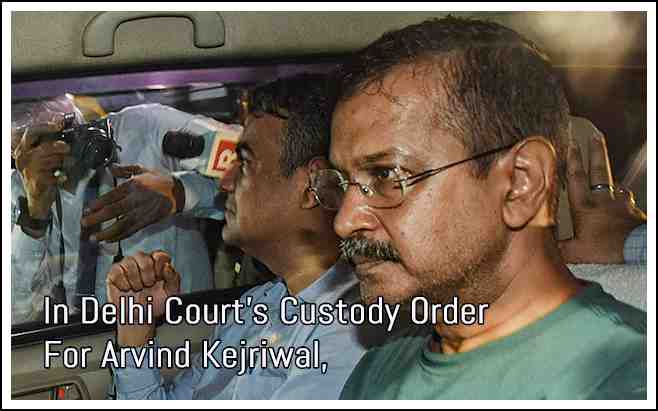
Arvind Kejriwal is allowed to see his wife Sunita for an hour every day and to have home-cooked meals, according to the Rouse Avenue court
The special CBI court that refused Delhi Chief Minister Arvind Kejriwal’s request for relief in the liquor policy case stated that it is not possible to say at this time that the arrest was unlawful based on the evidence in the record, but it did issue a warning that the investigating agency shouldn’t be “overzealous.”
The CBI has three days to house Arvind Kejriwal, which is two fewer days than they had requested. Within the Rouse Avenue court, he was taken into custody by the CBI.
He had been granted bail earlier by the Rouse Avenue court; however, the Delhi High Court postponed its decision and held off on making it. The Supreme Court denied Mr. Kejriwal’s request for redress. Then, the top court refused to grant him bail.
The wife of the head of the Aam Aadmi Party (AAP) has claimed that the “whole system” is working to keep her husband incarcerated. On June 20, Arvind Kejriwal was granted bail. ED received a stay right away. The CBI accused him the very following day. He was also arrested today. The goal of the entire system is to prevent the man from being released from prison. This is not legal advice. In a post on ‘X’, Sunita Kejriwal stated, “This is dictatorship; this is an emergency.”
The Rouse Avenue court declared that “investigation is the prerogative of the investigating agency” in its ruling granting the CBI custody for three days. “The law provides some protections, thus based on the information already in the file, it cannot be concluded that the arrest was unlawful at this time. But the agency shouldn’t become overly enthusiastic,” it has stated.
The central agency has been instructed by the court to bring Mr. Kejriwal into court on Saturday. The court has ordered that Mr. Kejriwal spend an hour each day with his wife. “Let the accused be given the home-cooked meals or medically advised diet during the police detention remand. During the remand, the accused may also be given the required medications and a glucometer. It has stated that the accused would also be permitted to wear eyeglasses, outlining the terms of imprisonment.
Senior Advocate Vikram Chaudhari, Mr. Kejriwal’s attorney, had emphasized that an arrest was not essential at this time and questioned the timing of the arrest. “The merits of the matter must now be taken into consideration by this court.
It stated, “Although the timing may be questionable, it is not a definitive standard for classifying an arrest as unlawful.
The AAP leader’s lawyer revealed that the CBI had interrogated him for nine hours in April of last year over this matter. Then, Mr. Kejriwal spoke straight to the court, repeating what he had told the CBI in response to a question about the rationale behind the now-repeated liquor policy’s formulation.
“I mentioned three things to them (the CBI). Initially, raise income. Reduce crowds in order to maintain law and order. The third is the appropriate number of booze stores opening (i.e., equal distribution over the city). I had instructed Manish Sisodia, his former deputy, to remember these three points in the policy (the latter was the first to be detained in this matter in February of last year),” the speaker stated.
It’s a poor citizen against the power of the state. August 2022 is when this case was last heard. I was asked to testify. I showed up and helped for nine hours. Since then, not a single notification (from the CBI). It’s a long way to go, explaining how somebody went from being a witness to an accused person,” the attorney said.
The AAP leader’s claims were deemed “unnecessary” by the CBI. Before the election, or even during it, we could have taken this action. We didn’t; the interrogation was only conducted with the court’s approval.”
Read Also:- Bar Council of India requests that bar associations abstain from demonstrating in opposition to new criminal laws.
You may like
-


North Korea asserts that the test of a multiple-warhead missile was successful
-
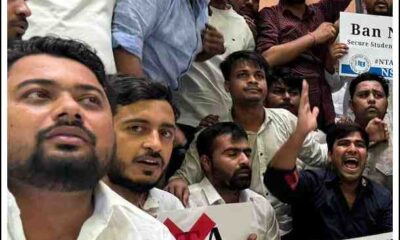

The Student Wing of Congress storms the Exam Body NTA office and locks it from within
-
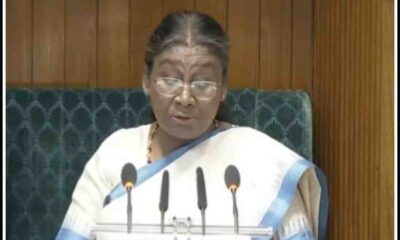

“During President Murmu’s address to Parliament, PM Modi was shown 73 times, and LoP Rahul Gandhi was shown six times”: Congress
-


NASA contracts Elon Musk’s SpaceX to deorbit the International Space Station in 2023.
-
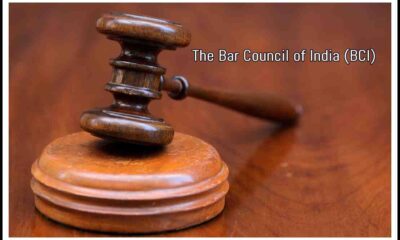

Bar Council of India requests that bar associations abstain from demonstrating in opposition to new criminal laws
-
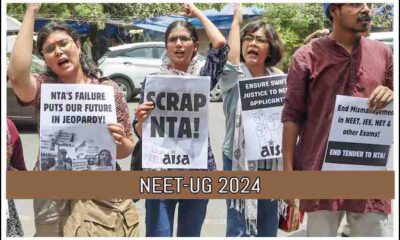

There A Time Limit For Filing Complaints Regarding OMR Sheets Under NEET-UG 2024? Supreme Court Requests NTA

